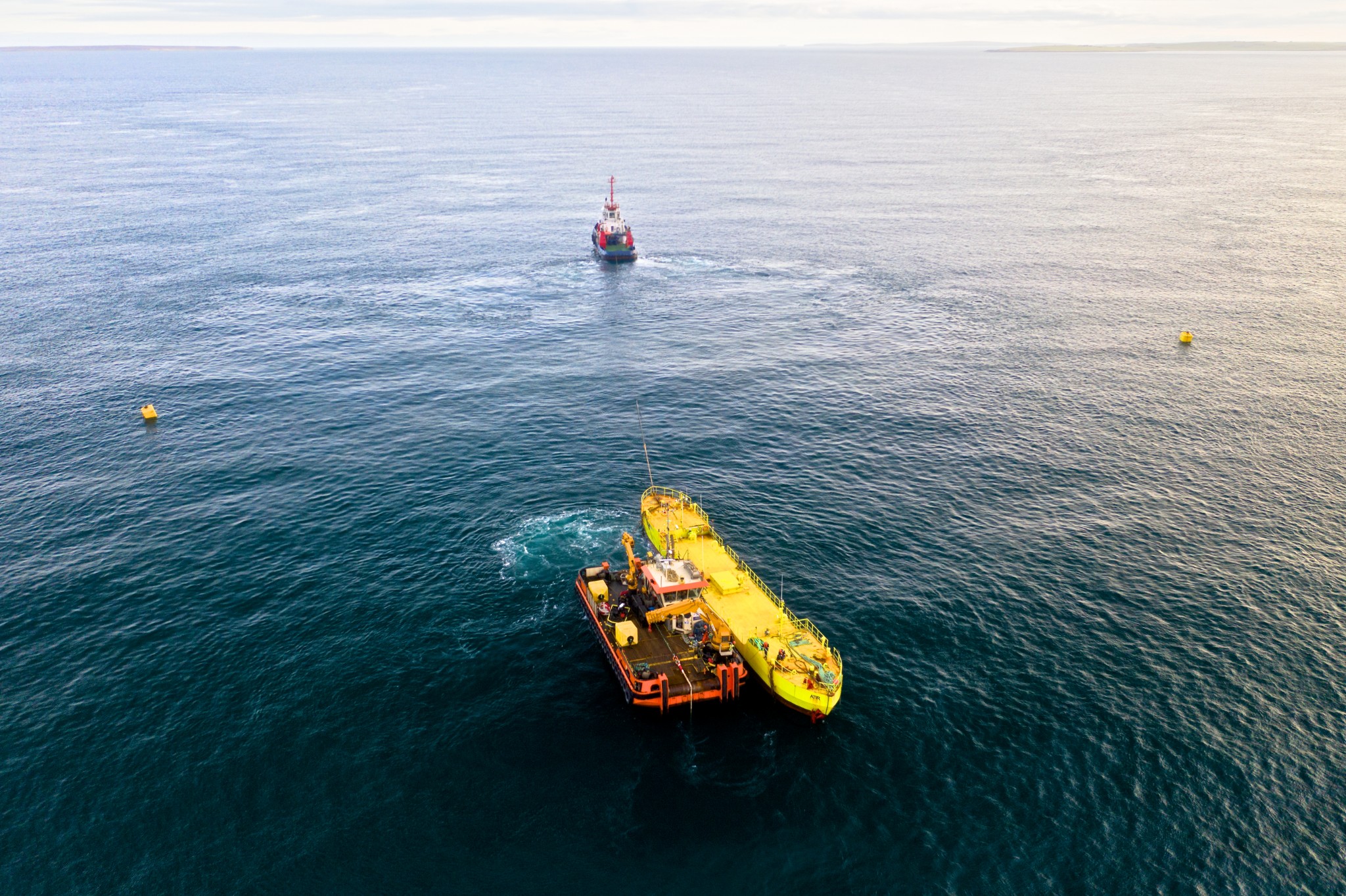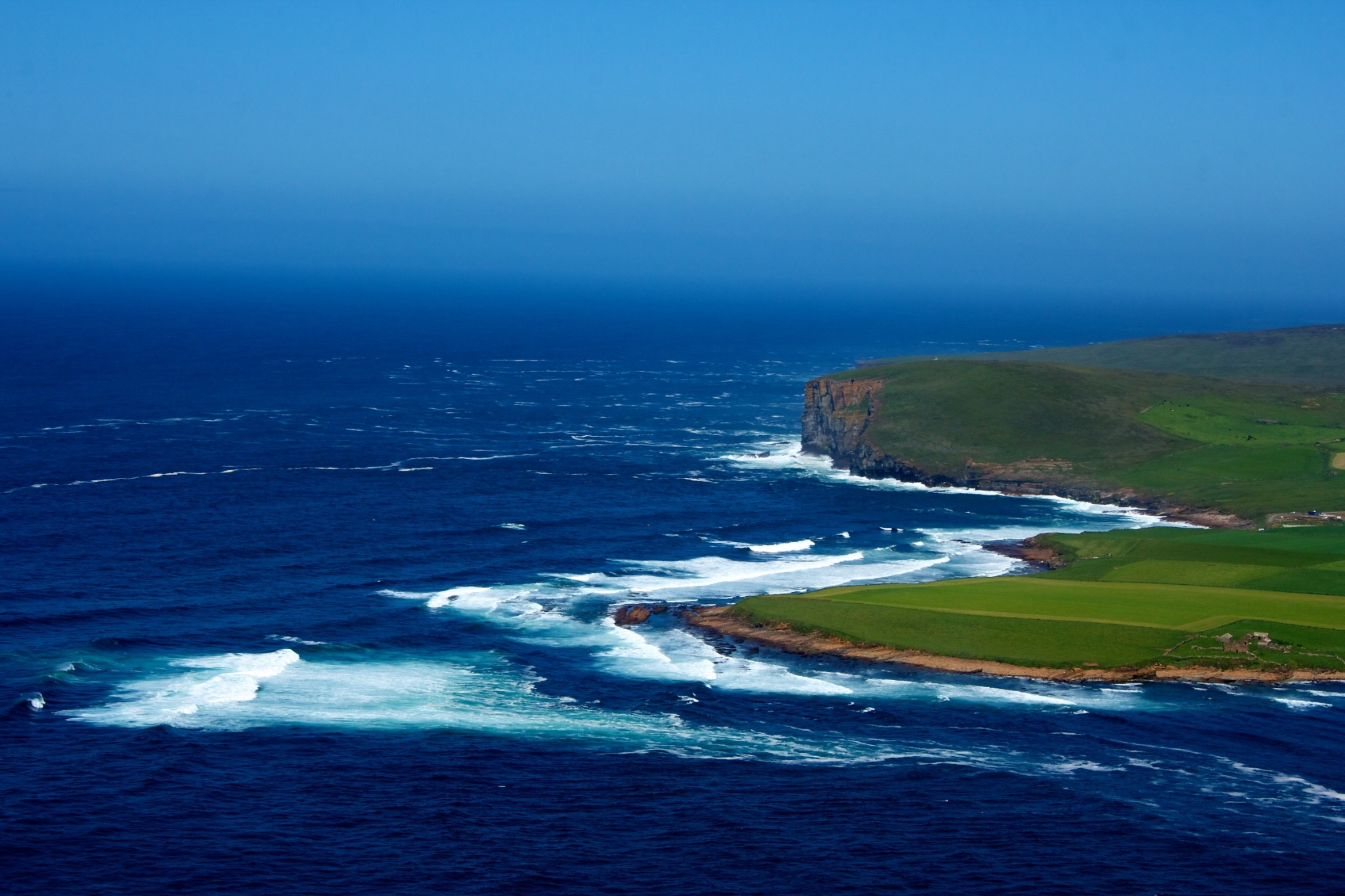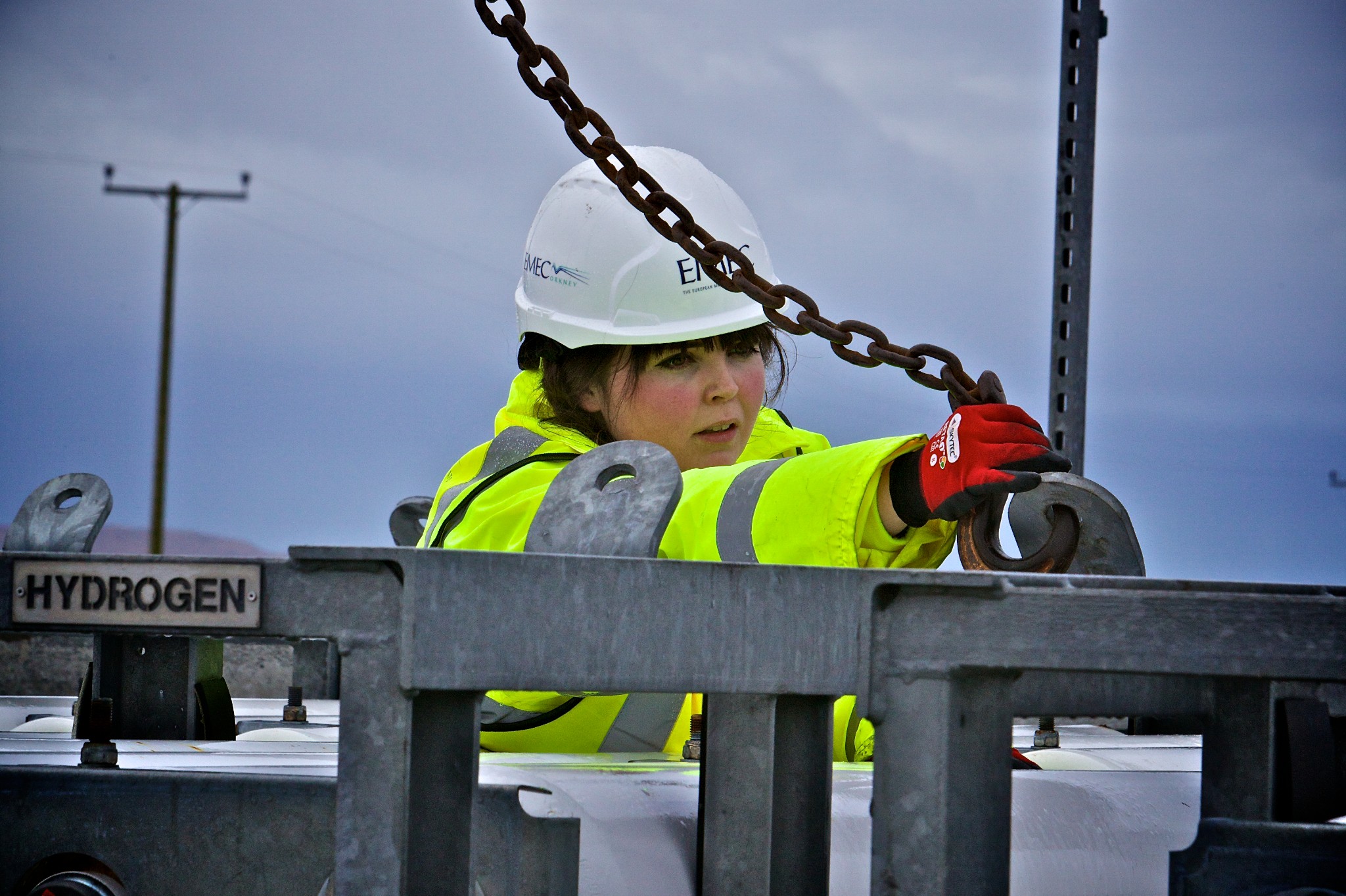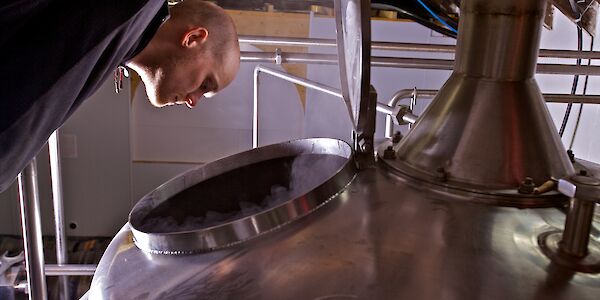Founded in Orkney in 2003, the European Marine Energy Centre (EMEC) is playing a key role in proving the value of wave and tidal power as a sustainable source of renewable energy.
And while ocean energy is still very much at the heart of its work, the skills and know-how developed at EMEC are now also being used to help the world decarbonise in areas including green hydrogen, floating wind, transport and energy systems.
EMEC's Orkney test sites
EMEC is the first centre of its kind to give developers the opportunity to test their wave and tidal energy converters in world class marine conditions.
On offer in Orkney are purpose-built, fully-accredited, open-sea testing facilities where devices can really be put through their paces. EMEC’s Billia Croo test site is found on the western edge of the Orkney mainland in an area with some of the highest wave energy potential in Europe. The tidal test site at the Fall of Warness, located to the west of the island Eday, was chosen for its high velocity marine currents which reach almost 4 m/s (8 knots) in spring tides.
There are also scale test sites in Scapa Flow and Shapinsay Sound where smaller devices, sub-systems and components can gain real sea experience in less challenging conditions.
Orkney is an ideal base for marine energy testing thanks to its strong tidal currents, grid-connection and close proximity to sheltered harbour facilities. There is also an incredible wealth of renewable, maritime and environmental expertise within the local community.
Developers from around the world have tested their devices in Orkney - more than 30 marine energy converters have been deployed at EMEC over the years.
Low carbon
With more than two decades of front-line experience in developing marine renewables, EMEC has continued to grow and is now an integral part of a number of exciting and innovative projects.
The organisation is working on developments in floating wind, green hydrogen, clean transport and energy systems. In Orkney it has set-up an onshore hydrogen production plant to generate hydrogen from tidal and wind energy. Its demonstration site for new hydrogen technologies is core to its hydrogen research projects.
Its test sites are also sought out by companies with alternative needs, including a subsea data centre designed by Microsoft, which was tested in Orkney between 2018 and 2020.
EMEC’s experience and reputation for excellence means that learning developed here in Orkney is used worldwide through an international network of test centres, with the islands playing a central role in the continued growth of wave and tidal energy, and the move to a low-carbon future.



